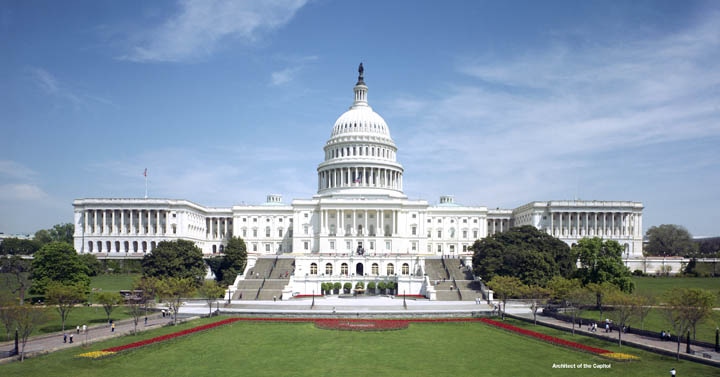
Arcane Senate rules allow 'hold' of pesticide permits
Arcane rules of the Senate prevented a vote in advance of yesterday’s expiration of the stay of the Sixth Circuit Court of Appeals’ January 2009 ruling in National Cotton Council, et. al. v. EPA.Lack of action means the EPA could begin implementing a system for issuing permits for such applications immediately.Holds placed by two senators – Barbara Boxer, D-Calif., and Benjamin Cardin, D-Md. – blocked a vote in the Senate on legislation.

A total of 68 senators were believed to be willing to vote for the passage of the Senate version of H.R. 872, the legislation that would have clarified that Clean Water Act permits are not required for the application of federally-labeled pesticides over water.
But the arcane rules of the Senate prevented a vote in advance of yesterday’s (Oct. 31) expiration of the stay of the Sixth Circuit Court of Appeals’ January 2009 ruling in National Cotton Council, et. al. v. EPA. The lack of action means the EPA could begin implementing a system for issuing permits for such applications immediately.
H.R. 872, the Reducing Regulatory Burdens Act of 2011, passed the House by a vote of 292-130 with a number of Democrats supporting the legislation. But holds placed by two senators – Barbara Boxer, D-Calif., and Benjamin Cardin, D-Md. – blocked a vote in the Senate on similar legislation.
“We had hoped that the United States Senate would take action and pass H.R. 872 or a reasonable moratorium alternative to avoid implementation of the Sixth Circuit’s misguided NPDES ruling before the deadline passed,” said Jay Vroom, president and CEO of CLA, one of the members of a coalition of agricultural groups supporting the bill.
�“Though the Senate, despite Herculean efforts by several Senators to find a way beyond the impasse, failed to act before time expired, we still hold out hope for Senate leadership to effectively address this issue.
Normally, a vote of 68 senators would be sufficient to override a “hold” or filibuster by one or two senators. But, in this case, Senate Majority Leader Harry Reid declined to schedule a vote for the legislation in time to avoid the expiration of the stay.
Despite assurances from EPA that enforcement on the regulation will be deferred until 2012, the EPA pledge does not prevent citizen action lawsuit liability for all of America’s farmers and pest control managers tasked with protecting the food supply and citizens from insect borne diseases and other harmful pathogens.
The NPDES-permitting program has long been used by EPA under the Clean Water Act (CWA) to regulate industrial and municipal point-source discharges of water contaminants.
“But Congress never intended nonpoint sources of contaminants to be similarly regulated and exempted agricultural storm water runoff and irrigation return flows from the CWA’s permitting program,” said Vroom.
“In 2006, EPA’s pesticide rule also exempted pesticide applications properly made to control aquatic pests. The court panel’s decision overturned EPA’s policy, ruling that the final rule was not a reasonable interpretation of the CWA and that pesticide applications made to, over, or near water bodies will require NPDES permits.”
Activist lawsuits
As a result, many beneficial pest control activities necessary to maintaining the health and welfare of Americans could be subjected to lawsuits from activists claiming that the use of pesticides is prohibited under the CWA unless authorized by an NPDES permit; of great concern to mosquito control officials, farmers, and pest managers for forests, waterways, parks and numerous other situations.
“Congress has never intended for the intersection of the CWA and the Federal Insecticide, Fungicide and Rodenticide Act (FIFRA),” said Beau Greenwood, executive vice president of CLA. “With an overwhelming bipartisan and bicameral majority supporting H.R. 872, it is disappointing that states and pesticide users will now be subject to duplicative regulation with no environmental benefit.”
Greenwood said states will now be forced to implement and enforce duplicative regulations of pesticides, and divert limited resources from programs with an environmental benefit to a burdensome paperwork requirement for certain aquatic pesticide applications.
CLA believes that H.R. 872 represents a responsible resolution to the court’s erroneous ruling in NCC v. EPA and will continue to push for its enactment while working closely with the states and all stakeholders impacted by the court’s ruling to minimize the practical burden on state agencies and pesticide users as they carry out their responsibilities and efforts to ensure public health.
“We appreciate the efforts of a vast majority of current Senators of both political parties who have indicated their support for the legislation as well as the efforts of those at the state level and the EPA throughout the process of developing the pesticide general permit and the transparency which has allowed for broad stakeholder input,” said Greenwood. “Nevertheless, we remain determined to enact a responsible resolution in an effort to avoid duplicative and burdensome regulation.”
About the Author(s)
You May Also Like





